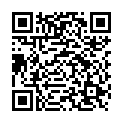|
|
|
| Module code: FT04.1 |
|
|
1V (1 hour per week) |
|
1 |
| Semester: 1 |
| Mandatory course: yes |
Language of instruction:
German |
Assessment:
[still undocumented]
|
FT04.1 (P242-0015) Automotive Engineering, Bachelor, ASPO 01.10.2015
, semester 1, mandatory course
FT04.1 (P242-0015) Automotive Engineering, Bachelor, ASPO 01.04.2016
, semester 1, mandatory course
FT04.1 (P242-0015) Automotive Engineering, Bachelor, ASPO 01.10.2019
, semester 1, mandatory course
|
15 class hours (= 11.25 clock hours) over a 15-week period.
The total student study time is 30 hours (equivalent to 1 ECTS credits).
There are therefore 18.75 hours available for class preparation and follow-up work and exam preparation.
|
Recommended prerequisites (modules):
None.
|
Recommended as prerequisite for:
FT16.1 Vehicle Superstructures and Lightweight Construction
FT19.1 Passive Vehicle Safety
FT26.1 Project Work 1
FT30 Engineering Project in English
[updated 11.05.2019]
|
Module coordinator:
Studienleitung |
Lecturer:
Prof. Dr.-Ing. Rüdiger Tiemann
[updated 05.03.2017]
|
Learning outcomes:
After successfully completing this part of the module, students will have gained insight into the structure and organization of the Automotive Engineering program.
They will have gained insight into and an overview of the organization, working methods and product development process of the German and international automotive industry and will be familiar with the requirements placed on its employees. They will be familiar with the technical and economic constraints on vehicle development.
[updated 30.09.2020]
|
Module content:
1. Role of OEMs, Tier 1, 2 and n suppliers and service providers in the automotive industry based on the examples of Germany, EU and other nations
2.
Product creation process from the idea to sales, development and production (SOP)
3. Product life cycle up to recycling (EOL)
4. Case study of a typical working day of an internationally active engineer in the automotive industry
[updated 30.09.2020]
|
Teaching methods/Media:
Seminaristic instruction with a written summary (PDF document)
[updated 30.09.2020]
|
Recommended or required reading:
# Homepages of various automobile manufacturers and suppliers, VDA, ATZ, MTZ
# Braess, Hans-Hermann(Hrsg.): Handbuch Kraftfahrzeug-Technik, Springer Vieweg, 2013
# Zürl, Karl-Heinz: Modern English for the Automotive Industry, Carl Hanser Verlag, 2005
[updated 30.09.2020]
|


